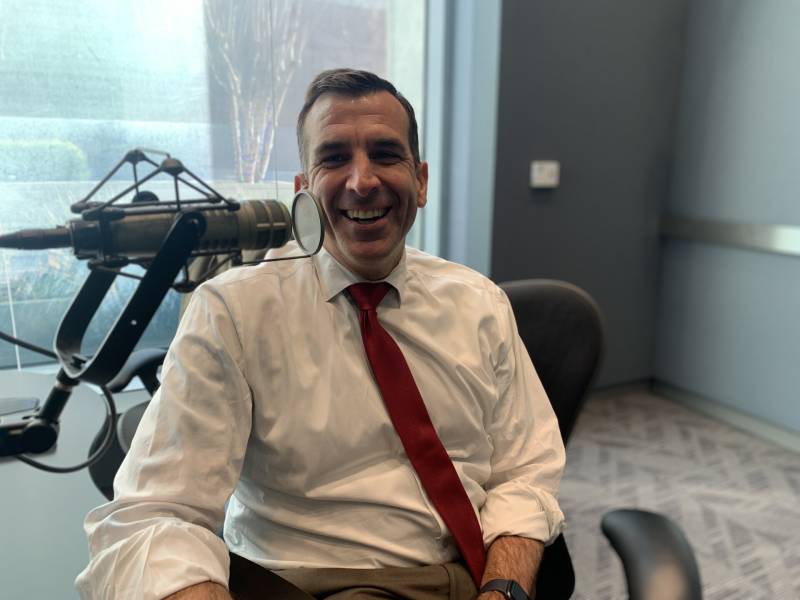After eight years as San José’s mayor — and another eight years before that on the City Council — Sam Liccardo is leaving City Hall.
When Liccardo was elected to the city’s top job in 2014, San José was still recovering from massive cuts to city services in the wake of the Great Recession, and city leaders were locked in a bitter fight over municipal employee benefits.
Liccardo was at the helm as the city celebrated the arrival of BART in north San José, the preservation of Coyote Valley and the Sharks’ first trip to the Stanley Cup Finals. During his tenure, the city also grappled with the damaging Coyote Creek flood of 2017, the COVID-19 pandemic and the tragic 2021 mass shooting at the VTA rail yard.
Liccardo sat down with KQED’s Guy Marzorati to reflect on his tenure.
This interview has been edited for brevity and clarity.
Guy Marzorati: Almost exactly a year ago today, you gave a speech calling homelessness the city’s “greatest failure.” A year later do you still feel that way? This is not a problem that has greatly improved, so what responsibility do you take for that?
Sam Liccardo: Well, as I said last year, I take responsibility because I’m the mayor. And that being said, I think the reality is I think every mayor of every major city west of the Rockies would say exactly the same thing about their own city if they were pressed.
The reality is that homelessness is rapidly rising in far too many cities throughout the country, where we’re seeing rising rents and extraordinary challenges in getting housing built. I’d like to think we’re making a lot of headway in ways that we couldn’t talk about years ago, but that we can say now. We’ve been able to deploy, for example, quick-build housing communities using prefabricated housing on underutilized public land, for example, near a Caltrans off-ramp. We’re able to build transitional housing for our unhoused residents and do that in a matter of months rather than building it in years, which is what it takes for a typical apartment complex.
Were there things that you tried that didn’t work?
We’ve tried tiny homes, which were really, you know, a much smaller version of quick-build housing. The tiny homes were really just small sheds. And we have those now at two sites and we’re operating them. It’s a very expensive model and, frankly, I don’t believe now that we’ve seen what we can do, I don’t think this is really the way to go. I’d rather see residents in more dignified housing where they have access to their own private bathroom.

